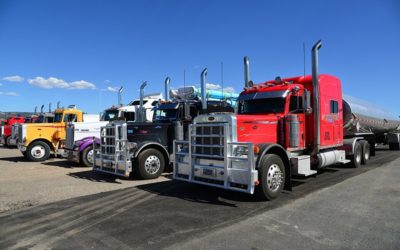Businesses in the transportation industry often face complex challenges not encountered by other companies. Managing the demands of a large fleet including; drivers, safety and compliance, and the maintenance of new trucks and other equipment can be quite complicated. To stay competitive, transportation companies look for every advantage possible to win new business, reduce expenses and increase service levels. The good news is the Tax Cut and Jobs Act of 2017, more commonly known as tax reform, ushered in several changes which will benefit transportation companies.
Prime examples include a reduction in business tax rates, changes to pass through entity taxes and expanded Section 179d expensing. There are several additional changes will can benefit transportation industry businesses in 2018 and beyond. To help clients, prospects and others understand the changes and corresponding benefits, we have provided a summary of key points below.
Key Tax Reform Changes
- Pass-Through Entity Taxation – Under prior laws, pass through entity owners had to pay tax on company earnings at their individual tax rate – often 39.6%. The new law allows qualifying pass through entities to receive a 20% deduction on pass-through income for tax years beginning after 12/31/17 and ending in 2025.
- Enhanced Section 179d Expensing – Tax reform has changed Section 179d expensing limits to allow companies to deduct up to $1M of the cost of qualifying property placed into service during the year. Beyond this, a business owner may purchase up to $2.5M (increased from $2.0M) in qualifying business property before the benefits are phased out.
- Luxury Auto Depreciation Limits – Under the new tax law, vehicles placed into service after December 31, 2017, weighing 6,000 pounds or less, have a new maximum deprecation limit of $10,000 in year one. If a company can claim bonus depreciation, then the possible limit is increased by $8,000 to $18,000. The limits also change in year two to $16,000, year 3 to $9,600 and in year 4 and beyond to $5,760. Vehicles that are over 6,000 pounds are not subject to these limits and are eligible for bonus depreciation if acquired and place into service after September 27, 2017. For Section 179, the limitation of $25,000 is still in place for SUVs.
- Immediate 100% Expensing – Companies will now be able to fully expense certain capital expenditures instead of depreciating them over several years, starting with business assets placed in service after September 27, 2017. There is no limit to the amount that can be expensed, but the percentage of allowable expensing will be phased out at a rate of 20% per year from 2023 (80%) to 2026 (20%). This immediate tax benefit is likely to encourage more capital spending, potentially enabling fleet upgrades and expansion for trucking and bus companies as well as others in the industry.
- Entertainment Deduction Repealed – Under previous rules, companies could deduct 50% for a variety of expenses, such as client meals, event tickets, charitable event tickets and membership fees. The new law eliminates deductions for entertainment, amusement, recreation, and club membership dues. This applies even for expenses directly related to the active conduct of a taxpayer’s trade or business.
- Limited Business Interest Expense Deduction – The deduction for net interest expenses incurred by a business will now be limited to 30% of its adjusted taxable income – or earnings before interest, taxes, depreciation and amortization. Businesses with average annual gross receipts of $25 million or less are exempt from the limit. This new rule will have the greatest impact on companies that carry a higher amount of debt
- Excess Business Loss – Starting in 2018 excess business loss of a taxpayer other than a C corporation is limited. Net business loss of $250,000 (or $500,000 in the case of a joint return) will not be deductible in the current year. However, an excess business loss is treated as part of the taxpayer’s net operating loss and can be carried forward to subsequent years.
CONTACT US
The new tax reform offers many changes that will benefit transportation companies. Since there have been significant changes over the past year, it’s important to work with a qualified advisor to help you leverage these opportunities. If you have questions about the changes or need assistance with a tax, accounting or audit issue, Smith Schafer & Associates can help.



